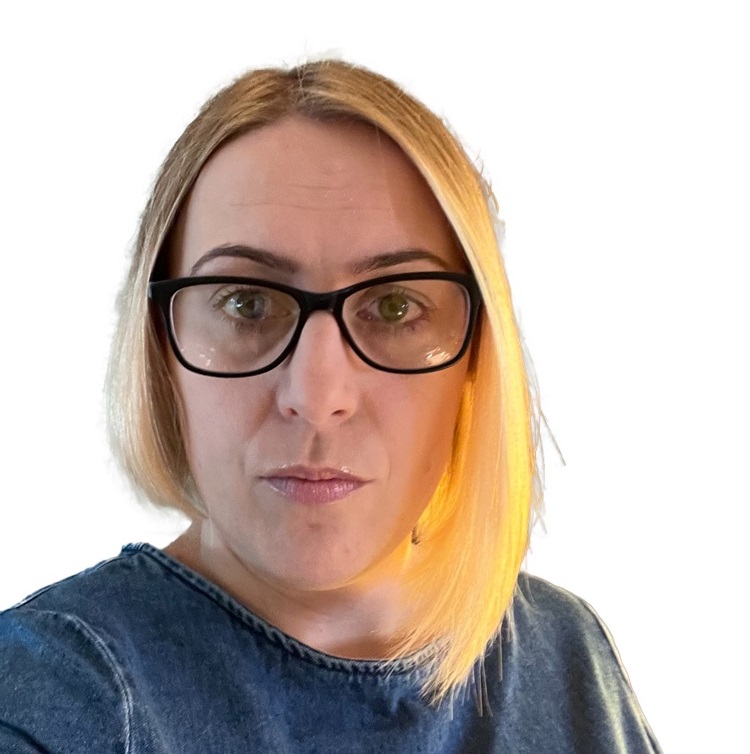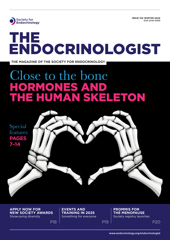While browsing the Society for Endocrinology website, I stumbled upon an intriguing advertisement for a ‘Masters-level module in endocrine nursing,’ which was promoted as a work-based learning opportunity. Having not long completed my non-medical prescribing module – an experience I found quite challenging – I thought to myself that I wasn’t ready to jump back into learning.
‘The more I learned, the more excited I became about the possibilities this module offered.’
However, I realised that the format of the endocrine nursing module would allow me to build on the foundation I established during my non-medical prescribing studies, while applying what I learned in a real-world context. Despite my initial reservations about diving back into academia, I recognised that the challenges I faced in the prescribing module ultimately contributed to my growth. The complexities of endocrine disorders require a robust understanding, and I was eager to enhance my skills further.
I began to envision how this module could complement my existing qualifications and improve my practice. It would not only empower me to provide better care for my patients, but also open up new opportunities for professional development. So, I decided to reach out to the programme co-ordinators and the Society for Endocrinology to gather more information and discuss potential pathways for enrolment.
I completed my application in May 2023 and, in September 2023, I received the thrilling news that I had been funded to start the module. To say I was over the moon would be an understatement – it felt like another significant milestone in my career! However, with that excitement came a wave of worries and fears about how I would balance the demands of the module with my work responsibilities.
The more I learned, the more excited I became about the possibilities this module offered. It was a chance to refine my expertise in a specialised area and connect with fellow nursing professionals who were passionate about endocrinology. I felt invigorated by the prospect of learning in a collaborative environment, where I could share experiences and strategies with peers facing similar challenges.
Fortunately, I had the support of a fantastic tutor who guided me through the initial stages of the course. Their expertise and encouragement were invaluable, especially as I navigated the complexities of the curriculum. I quickly learned that I wasn’t alone in this journey; many endocrine nurse specialists who had completed the module before me were eager to share their insights and experiences.
Their willingness to help was incredibly reassuring. They provided practical tips on managing time effectively, balancing clinical duties with study commitments, and staying organised. I found their stories inspiring, which motivated me to push through any doubts I had about my abilities.
As the module progressed, I began to develop a structured approach to my studies. I created a weekly plan that allocated specific times for coursework, practical experience and self-care. This not only helped me stay on track but also reduced my anxiety about falling behind. But there were definitely moments when I felt overwhelmed throughout the module.
‘The collaborative atmosphere encouraged me to embrace the knowledge that was shared and to ask questions, enhancing my understanding of endocrine nursing.’
I also engaged actively in discussions with my peers, which fostered a sense of community. Sharing challenges and triumphs made the learning experience much richer and reinforced my commitment to the module. The collaborative atmosphere encouraged me to embrace the knowledge that was shared and to ask questions, enhancing my understanding of endocrine nursing.
As I approached the final month of my course, we prepared to submit our formative assessments. I had received a good mark on my preliminary work, but my tutor encouraged me to aim even higher. I reached out to academic support and, with their guidance, I began to restructure my essay. After submitting my final work, I eagerly awaited my results. A few weeks later, I checked my mark and was thrilled to see that my efforts had paid off – I had improved my overall score to 72 out of 100. What a relief!
Reflecting on my journey, I realised that stepping out of my comfort zone could lead to new insights and growth. I am ready to embrace the challenge and take the next steps in my professional development.
COSMINA SCHITEANU
Endocrine Nurse Specialist
FURTHER READING
M Qanbari Qalehsari et al. 2017 Electronic Physician http://doi.org/10.19082/5541.
Find out more about the Masters-level module in endocrine nursing, offered by the Society for Endocrinology in collaboration with Oxford Brookes University






